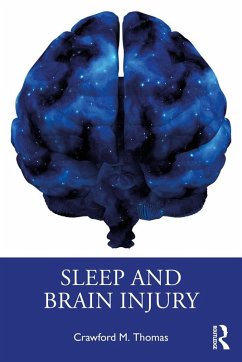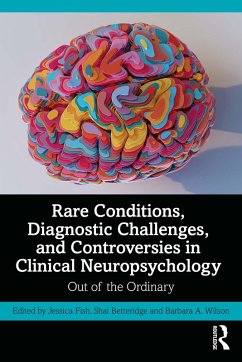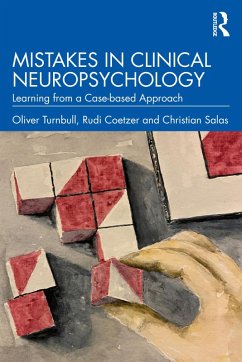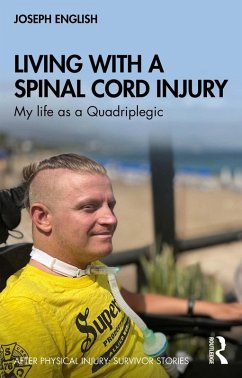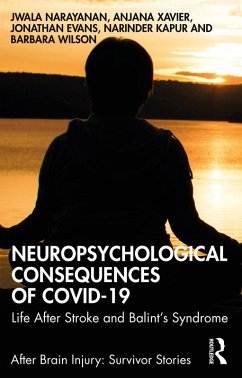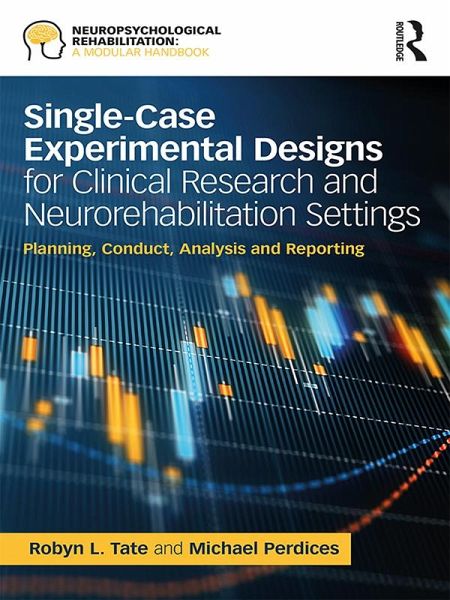
Single-Case Experimental Designs for Clinical Research and Neurorehabilitation Settings (eBook, ePUB)
Planning, Conduct, Analysis and Reporting
Versandkostenfrei!
Sofort per Download lieferbar
36,95 €
inkl. MwSt.
Weitere Ausgaben:

PAYBACK Punkte
18 °P sammeln!
This book is a practical resource designed for clinicians, researchers, and advanced students who wish to learn about single-case research designs. It covers the theoretical and methodological underpinnings of single-case designs, as well as their practical application in the clinical and research neurorehabilitation setting. The book briefly traces the history of single-case experimental designs (SCEDs); outlines important considerations in understanding and planning a scientifically rigorous single-case study, including internal and external validity; describes prototypical single-case desig...
This book is a practical resource designed for clinicians, researchers, and advanced students who wish to learn about single-case research designs. It covers the theoretical and methodological underpinnings of single-case designs, as well as their practical application in the clinical and research neurorehabilitation setting. The book briefly traces the history of single-case experimental designs (SCEDs); outlines important considerations in understanding and planning a scientifically rigorous single-case study, including internal and external validity; describes prototypical single-case designs (withdrawal-reversal designs and the medical N-of-1 trial, multiple-baseline designs, alternating-treatments designs, and changing-criterion designs) and required features to meet evidence standards, threats to internal validity, and strategies to address them; addresses data evaluation, covering visual analysis of graphed data, statistical techniques, and clinical significance; and provides a practical ten-step procedure for implementing single-case methods. Each chapter includes detailed illustrative examples from the neurorehabilitation literature.
Novel features include:
It is valuable reading for clinicians and researchers in several disciplines working in rehabilitation, including clinical and neuropsychology, education, language and speech pathology, occupational therapy, and physical therapy. It is also an essential resource for advanced students in these fields who need a textbook for specialised courses on research methodology and use of single-case design in applied clinical and research settings.
Novel features include:
- A focus on the neurorehabilitation setting, which is particularly suitable for single-case designs because of the complex and often unique presentation of many patients/clients.
- A practical approach to the planning, implementation, data analysis, and reporting of single-case designs.
- An appendix providing a detailed summary of many recently published SCEDs in representative domains in the neurorehabilitation field, covering basic and instrumental activities of daily living, challenging behaviours, disorders of communication and cognition, mood and emotional functions, and motor-sensory disabilities.
It is valuable reading for clinicians and researchers in several disciplines working in rehabilitation, including clinical and neuropsychology, education, language and speech pathology, occupational therapy, and physical therapy. It is also an essential resource for advanced students in these fields who need a textbook for specialised courses on research methodology and use of single-case design in applied clinical and research settings.
Dieser Download kann aus rechtlichen Gründen nur mit Rechnungsadresse in A, B, BG, CY, CZ, D, DK, EW, E, FIN, F, GR, HR, H, IRL, I, LT, L, LR, M, NL, PL, P, R, S, SLO, SK ausgeliefert werden.





